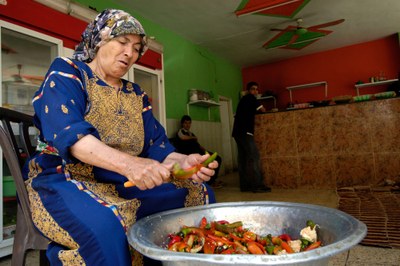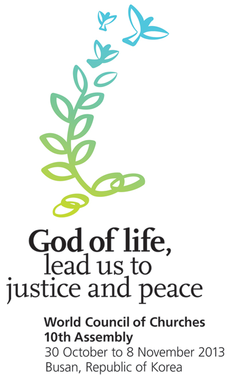Paths of Justice
The image of food is at the centre of prayers and Bible study for Wednesday, 6 November. The Bible text guiding prayers and study is from 1 Kings 21:1
Food and Soil
The most common biblical images are related to food: bread, manna, milk and honey. God gives all living creatures their food. God feeds the church at the Eucharist. Christ is called the Bread of life. Feeding the hungry is a fundamental call of the Christian life
Yet, gone is our forest; worn is the earth! There is struggle in the journey, and a hunger for justice
Judaism, Christianity, and Islam arose in a desert climate. Because soil was poor and rainfall scarce, God was credited with a bountiful harvest. A famous harvest story in the Bible is one of no harvest, the famine that forces Joseph’clan to move to Egypt
The language of harvest continues through the scriptures. The psalms praise God for good harvests (Psalm 65). Later prophets, such as Amos, rail against the people for unjust distribution of food at the harvest. Government confiscation and colonial conquest of the ancestral lands of indigenous people is particularly grievous.
Opening prayer
L: Glory to the Father, and to the Son, and to the Holy Spirit, as it was in the beginning, is now and will be forever.
C: Amen.
L: Blessed are those who hunger for justice, for they shall be filled.
See page 96 of Halleluja! Resource for Prayer and Praise (pdf, 4 MB) for all prayer texts of the day.
Bible Study: Struggles for Justice in an Ambiguous World
The story of Naboth’s vineyard challenges the concept of justice in our society. It introduces God’s justice for the affirmation of life, a measure beyond the economic logic of King Ahab in the name of efficiency and productivity. The text can also guide us in dealing with current issues of injustice in the global market and in discerning how to live out God’s justice to safeguard life.
Read the complete Bible Study by Sarojini Nadar
Questions for reflection and discussion
- Read the text aloud in your group. Appoint volunteers to read those parts that are assigned to them in the text (Invite volunteers to be dramatic).
- Narrator
- Ahab
- Naboth
- Jezabel
- Jezreelites
- God
- Elijah - Reflect on what you think the themes of the text and defining traits of each character are.
- In what ways are we as individuals or communities aligned with Jezebel and with Elijah and the Israelites in current-day contexts?
- In what tangible ways can we repent as individuals, churches, and nations for our confiscation of others peoples' inheritances and rights?
- Does the ecumenical movement need to be prophetic even in the market? What is the difference between God’s justice and the “market justice”?






